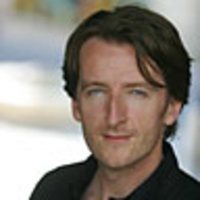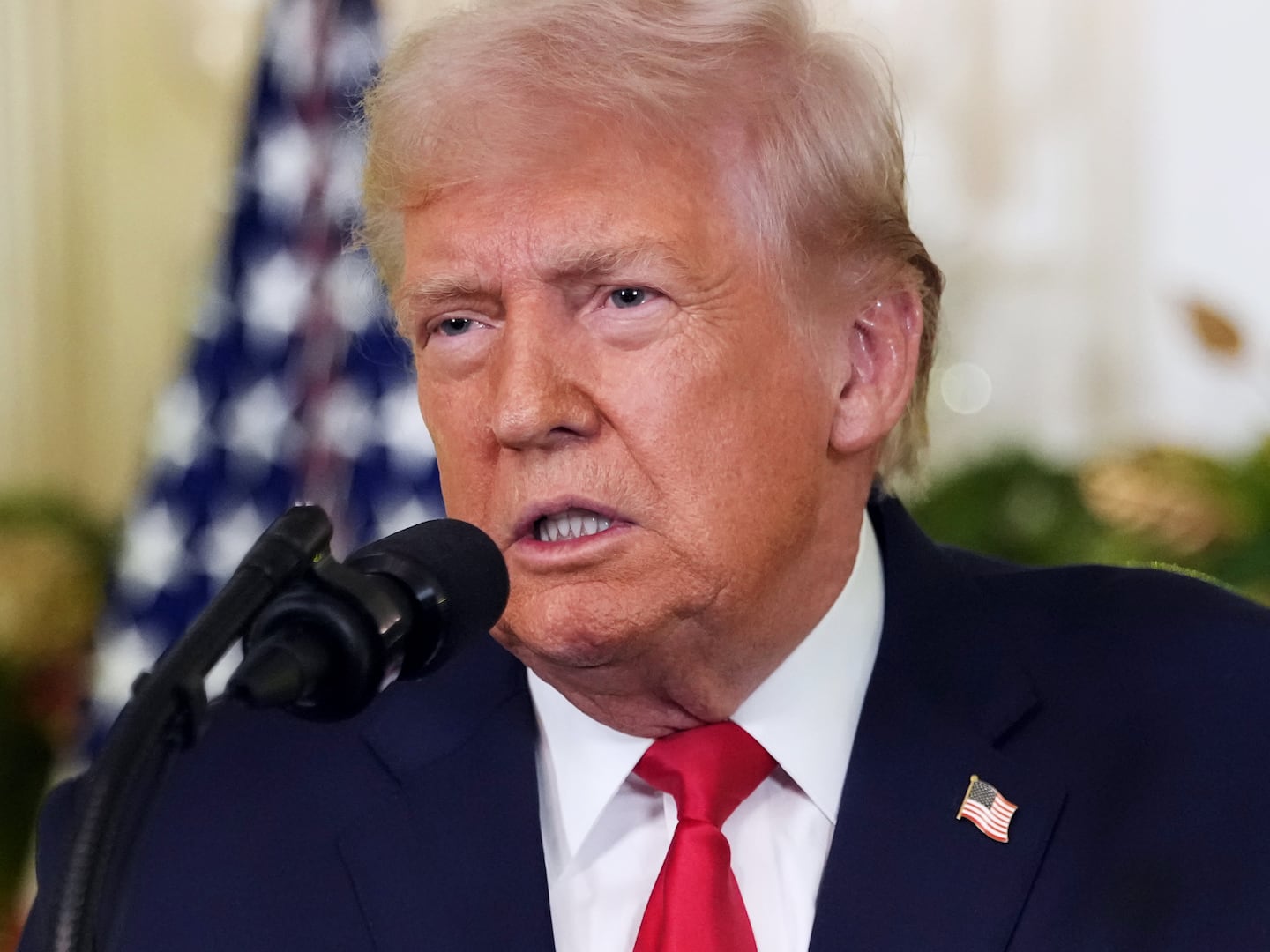
Walking outside Bethlehem’s Nativity Church last week, I noticed that Palestinians had set up a placard with a collage of images from Pope Benedict XVI’s life, as part of the welcome for the pontiff who’ll say Mass Wednesday in the town of Jesus’ birth. There was a particularly fetching shot of him as a youth. Specifically, a Hitler Youth.
Whether the photo was intended as a finger in the eye of the Israelis or simply an example of the Holocaust tin ear frequently displayed by Palestinians, it’s clear that it won’t be the only contentious element to emerge during the Pope’s five-day visit to Israel and the West Bank, which begins this morning. Low expectations from local leaders of all three of the world’s great monotheistic religions greet the German pope as he touches down in the Jewish state.
If there's anywhere that needs healing, it's the Holy Land. But to send in the man who quoted an old text that said Islam was “evil and inhuman”? And who reinstated a bishop whose claim is that no more than 300,000 Jews died in the Holocaust? Don’t hold your breath, reconciliation fans.
The Vatican, for its part, bills the trip as a pilgrimage intended to bring reconciliation. If there's anywhere that needs healing, it's the Holy Land. The Palestinians are two years into a civil war between Fatah and Hamas, and life is quite unpleasant for their disappearing Christian Arab minority. Israel, meanwhile, has a new right-wing government that’s on a collision course with most of the world.
But to send in the man who quoted an old text that said Islam was “evil and inhuman”? And who reinstated a bishop whose claim is that no more than 300,000 Jews died in the Holocaust? Don’t hold your breath, reconciliation fans.
It’s a case of the right Holy Land, the wrong Holy Father.
Nine years ago, I covered a similar visit by John Paul II. That pope had a reputation for grand gestures, but even he couldn't get any change out of the Israelis and Palestinians. He ended up hunched in his chair at one public event while Israel’s chief rabbi and the head of the Palestinian Authority’s Islamic courts squabbled about whose people had suffered the most and who had the greatest right to possession of Jerusalem. With several thousand more dead since then in the intifada and the war in Gaza, Israelis and Palestinians are in an even-les-forgiving mood than they were in 2000.
After he says Mass in Bethlehem, Benedict will visit the Aida Refugee Camp, a cinderblock warren that’s home to 4,000 Palestinians. It’s nestled against the looming concrete of Israel’s “separation wall.” The refugees are peeved that the pope won’t address them from the amphitheater they built just so the world’s cameras would frame him against the 50-foot wall.
In fact, it’s not clear how many of them the pope will address at all. Only 300 people will be inside the camp’s U.N. school when he visits, and most of them will be Palestinian dignitaries, not refugees. “We don’t like the pope,” shrugs a boy playing near the U.N. school last week. “He’s not a Muslim.”
If only the Islamists of northern Israel were as mild in their rejection of the pontiff. Leaflets distributed in Nazareth, where the pope will say Mass on Thursday, call for violence against Benedict because of a speech three years ago in which he quoted a Byzantine emperor critical of Islam. There’ll be 80,000 Israeli security personnel deployed to protect the pope from those who don’t adhere to his message of peace.
Benedict has made nice to Muslims since that dissonant Islam speech, praying at the Blue Mosque in Istanbul in 2006. He has also promised to visit the Yad Vashem Holocaust Memorial in Jerusalem, which senior clergymen here hope will make up for the reinstatement of a schismatic British bishop who turned out to be a rather strident Holocaust denier.
His fans say the pope’s gaffes aren’t really mistakes at all—people just take them out of context. They also say that his apologetic responses to critics lead to true reconciliation between the faiths. “There’s no perfect way of doing things,” says Monsignor Antonio Franco, the papal representative in Jerusalem.
Israelis, for their part, have basically agreed to swallow Benedict’s line that he was forced to join the Hitler Youth as a boy. Still, when he visits the Western Wall Tuesday, Benedict will be screened off from ultra-Orthodox Jewish worshippers so they won’t be offended by the site of a man wearing a cross around his neck praying at their holy site.
Even people who work on interfaith relations between Israel and the Vatican will take some convincing that Benedict really wants to improve the Roman Catholic Church’s ties to the Jewish state. “In the last six months, there’s been a crisis in Vatican-Israeli relations,” says Deborah Weissman, president of the International Council of Christians and Jews. “There were many errors of judgment by the Vatican. I’d like to see him try to do something about that.”
Many are smarting still from Benedict’s repeated criticism of their war against Hamas in Gaza, which they viewed as self-defense against missile attacks. A former Israeli ambassador to the Vatican pointed out in an op-ed in the liberal Ha’aretz daily last week that Monsignor Franco is the pope’s “emissary to the Holy Land.” “They can’t even bring themselves to say he’s the ambassador to Israel,” he wrote.
The pope also wants to skirt another recent source of conflict with Israel—the planned beatification of Pope Pius XII. Historians—Jewish and not—argue that the World War II pope failed to speak up against the murder of Jews. The Vatican maintains that Pius worked behind the scenes to save victims of the Holocaust.
While at Yad Vashem, Benedict will only visit the memorial, skipping the adjacent museum to steer clear of an exhibit on Pius, which says the wartime pope followed a “neutral position” on the Holocaust. Monsignor Franco said last week that he expected Israel to keep the issue off the agenda, but senior rabbis say they expect some of the Israeli leaders who meet Benedict will protest sainthood for Pius. It’s an issue that might come up when Benedict visits President Shimon Peres on Monday or when he meets Prime Minister Benjamin Netanyahu in Nazareth Thursday.
It’s a shame Benedict has put himself in such a lousy starting position with Muslims and Jews before this trip, because the indigenous Christians really need him to use his influence on their behalf. In Bethlehem, they’re a minority of less than 20 percent these days, down from an overwhelming majority a few decades ago, shoved out by Muslim gangsters and the economic effects of Israel’s wall on the tourist trade. Elsewhere, Christians are dwindling faster, slipping to about 2 percent of the total population of the Holy Land.
“The pope must combat the Christianophobia of this region and promote religious freedom,” says Bishop Munib Younan, head of the Lutheran Church in the Holy Land. “Our people are migrating fast. It’s a crisis.”
Trouble is, Benedict may be one of the causes of Christianophobia, not the cure.
Matt Beynon Rees is a former Jerusalem bureau chief for Time magazine who has been based out of the Middle East since 1996. He is the author of Cain's Field: Faith, Fratricide, and Fear in the Middle East, a nonfiction account of Israeli and Palestinian society. He is also the author of a the Omar Yussef series of Palestinian crime novels, including The Collaborator of Bethlehem and The Samaritan’s Secret, which was published in February.





